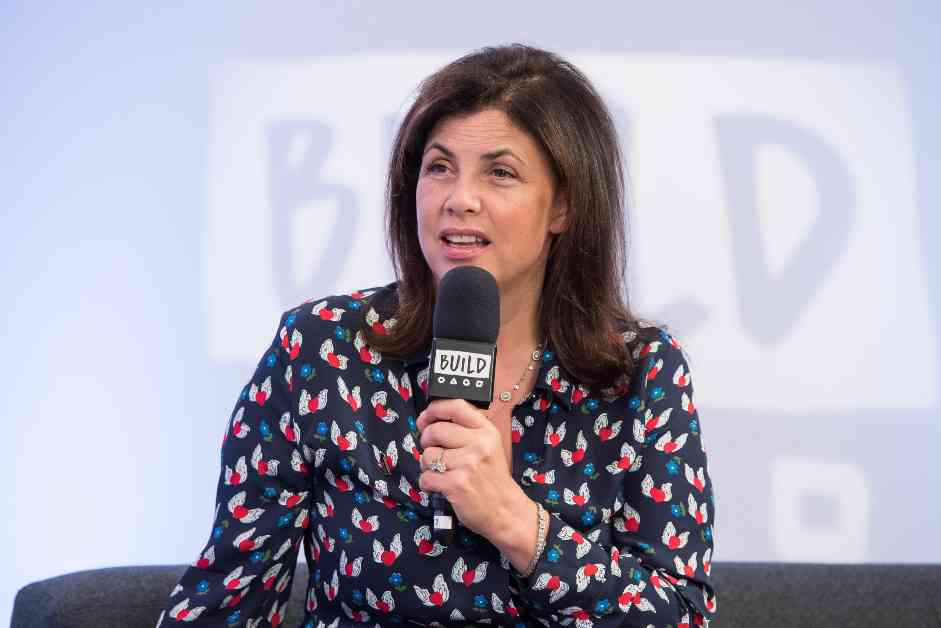British TV Star Faces Investigation by Child Protective Services After Allowing 15-Year-Old Son to Travel Alone
British TV personality Kirstie Allsopp stirred up controversy when she allowed her 15-year-old son to embark on a three-week train trip around Europe with a 16-year-old friend. Ms. Allsopp proudly shared the news on social media, showcasing her son’s independence and adventurous spirit. However, her post quickly caught the attention of child protective services, leading to an investigation into her parenting decisions.
The Journey of Independence
Last week, Ms. Allsopp took to social media to share her son’s exciting journey. She wrote, “My little boy has returned from 3 weeks inter-railing, he’ll be 16 on Wednesday so he went with a mate who’s already 16 due to hostel/travel restrictions, but they organized the whole thing: Paris, Brussels, Amsterdam, Berlin, Munich, Marseille, Toulouse, Barcelona, and Madrid.” While some praised her for fostering independence in her son, others criticized her for allowing such a young teenager to travel alone.
Ms. Allsopp defended her decision, emphasizing that every child is unique and capable of different levels of responsibility. She argued that the real danger lies in underestimating children, not in giving them the freedom to explore and learn from new experiences. Drawing on examples from her own family history, she highlighted that previous generations had taken on significant responsibilities at even younger ages without being considered neglectful parents.
The Backlash and Investigation
Despite her impassioned defense, the public outcry against Ms. Allsopp’s parenting choice continued. Concerns about the safety and well-being of her son were raised, with many citing the inherent risks of allowing a minor to travel unaccompanied. These criticisms ultimately led to an investigation by the Royal Borough of Kensington and Chelsea’s child protective services agency.
Upon receiving a text from the agency notifying her of the investigation, Ms. Allsopp was taken aback by the sudden scrutiny of her parenting. The agency explained that any report made to them must be investigated as per legal obligations, regardless of the motive behind the report. Despite Ms. Allsopp’s attempts to rationalize her decision and highlight her son’s maturity and readiness for the trip, the agency maintained that they had to follow protocol.
The Long-Term Impact
One particular point of contention was the agency’s indication that the case file regarding Ms. Allsopp’s son would remain open until he turned 25. This extended period of monitoring raised questions about the boundaries of parental autonomy and the role of child protective services in overseeing children’s upbringing. While the agency’s intentions may be rooted in ensuring children’s safety, the implications of prolonged surveillance on a child’s development and parents’ decision-making autonomy cannot be overlooked.
The Case for Reasonable Independence
In response to the scrutiny and criticism she faced, Ms. Allsopp highlighted the importance of allowing children to explore their independence and take on challenges. She emphasized that parents play a crucial role in preparing their children for the realities of the world, rather than shielding them from every potential risk. By acknowledging her initial reluctance to approve the trip and ultimately trusting her son’s capabilities, Ms. Allsopp underscored the delicate balance between protection and empowerment in parenting.
Addressing the Regulatory Framework
The case of Kirstie Allsopp’s son traveling alone sheds light on the need for a nuanced approach to parenting and child protection laws. While child protective services are essential in safeguarding children from neglect and abuse, there is a growing recognition of the importance of allowing children reasonable independence and autonomy. In the United States, several states have enacted laws defining neglect as exposing children to serious and unreasonable danger, rather than simply allowing them to engage in age-appropriate activities independently. Adopting a similar legal framework in the UK could help strike a balance between ensuring children’s safety and respecting parents’ judgment.
Empowering Parents and Children
Ultimately, the debate surrounding Ms. Allsopp’s decision to let her son travel alone reflects broader societal attitudes towards parenting and child rearing. While concerns for children’s safety are valid, fostering resilience, self-reliance, and independence in young individuals is equally important. By empowering parents to make informed decisions about their children’s upbringing and encouraging children to take on challenges within a safe and supportive environment, we can promote healthy development and well-being for the next generation.
In Conclusion
The case of Kirstie Allsopp and her son’s solo travel adventure serves as a reminder of the complexities inherent in parenting and child protection. While it is crucial to prioritize children’s safety and well-being, it is equally essential to recognize the value of allowing children to explore their independence and learn from new experiences. By striking a balance between protection and empowerment, we can create a nurturing environment that fosters resilience, confidence, and self-discovery in young individuals. As we navigate the intricacies of modern parenting, let us strive to support families in raising healthy, happy, and capable children who are prepared to face the challenges of the world with courage and resilience.

